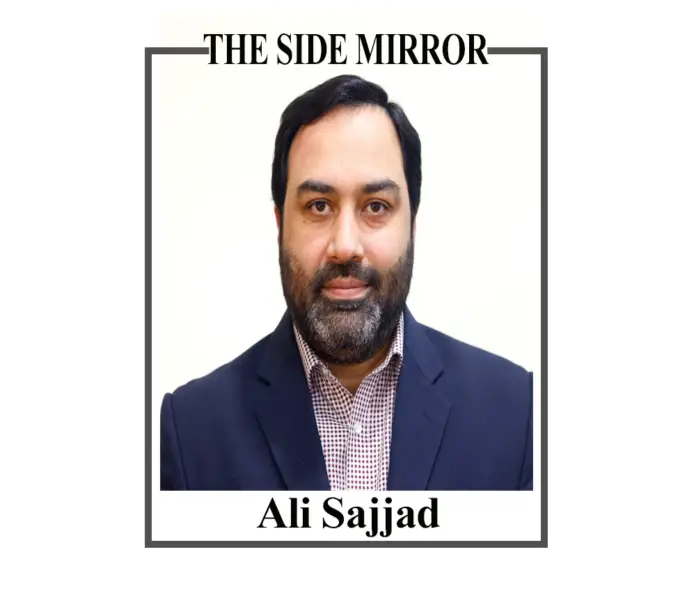The Pakistan Tehreek-i-Insaf (PTI) has been in troubles for over two years.
Its problems are mostly related to the policies of its founder Imran Khan. Another big problem is May 9.
Even before May 9, 2023, the PTI had fallen out of establishment favour. Now, there are rumours that the PTI chairman may be given some concessions from the powerful circles. I have already written that such chances are quite scant.
The real problem with the PTI chairman and his comrade is that they prioritise talks with the military establishment over dialogue with other political stakeholders.
This was most recently said by PTI leader and MNA Shehryar Afridi that they would only engage with the army chief, ISI director general, and the Pakistan Army, bypassing those political parties part of the federal government. While calls for reconciliation and a “new page” are voiced from various corners, the persistent sidelining of civilian discourse remains a significant hurdle to true political stability.
Afridi’s statement, while reflecting PTI’s ongoing tensions with the current government, exposes a deeper issue. It suggests a faith in military intervention as a solution to political disputes. There is no denying the fact that our history of military involvement in politics is fresh in the national memory. Here, the PTI does a mistake: by seeking solutions from the military, it weakens its own case and the very democratic institutions.
This approach stands in stark contrast to the growing chorus urging for dialogue between political parties. President Asif Zardari, while addressing the joint session of Parliament, called for an end to polarization. Similarly, PML-N’s Senator Irfan Siddiqui’s offer of an “olive branch” and his reminder of the importance of setting traditions for future generations resonate with the yearning for a more mature political discourse.
The contrast between PTI’s stance and the calls for inter-party dialogue is further highlighted by Chief Minister Ali Amin Gandapur’s lack of cooperation with the federal government. Such rhetoric not only undermines the democratic process but also fuels further division. It is worth noting Senator Siddiqui’s pointed question – if PTI can cooperate with political rivals like Mahmood Khan Achakzai and Maulana Fazlur Rehman, why cannot they engage with the government for the sake of the nation?
This selective engagement with certain power centers also raises questions about PTI’s true intentions. Afridi claims their objective is not seeking a deal or amnesty, but national betterment. However, prioritizing talks with the military over elected representatives casts doubt on this narrative. It suggests a preference for backroom negotiations over transparent, public discourse.
The media’s role in perpetuating this dynamic deserves scrutiny as well. The eagerness of some TV channels to amplify statements seeking military intervention, while overlooking calls for inter-party dialogue, contributes to a distorted public discourse. Media outlets should strive for balanced coverage, ensuring all voices – civilian and military – are heard fairly.
Pakistan’s future hinges on the ability of its political parties to engage in constructive dialogue. The current focus on military intervention as a shortcut to resolving political disputes is a recipe for continued instability. It is time for all political actors to prioritize open communication and collaboration with each other, not with unelected institutions.
The Senate’s call for strengthening parliamentary democracy offers a beacon of hope. Genuine political reconciliation requires a commitment to democratic norms and a willingness to find common ground through open dialogue. Leaders must prioritize the needs of the people they represent, not seek validation from unelected power centers.
Pakistanis deserve better. They deserve a political system where their elected representatives work together to address national challenges, not a system where parties prioritize backroom deals with the military. Only through genuine inter-party dialogue and a commitment to democratic institutions can Pakistan achieve true political stability and progress.







